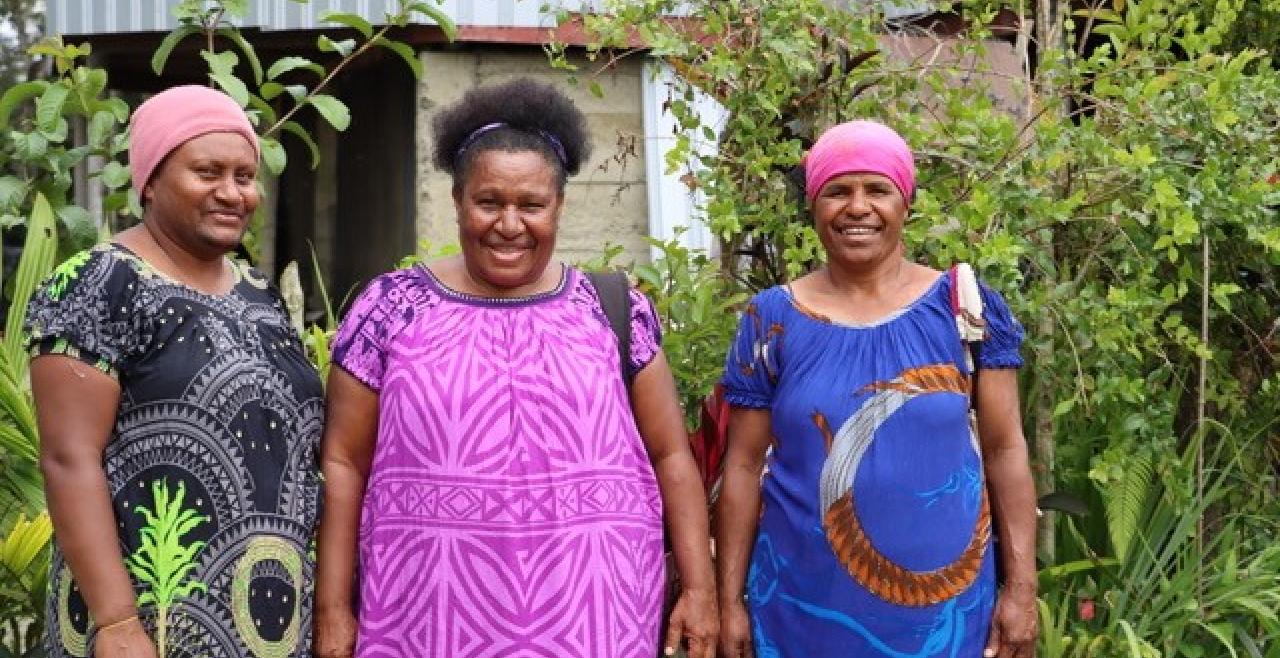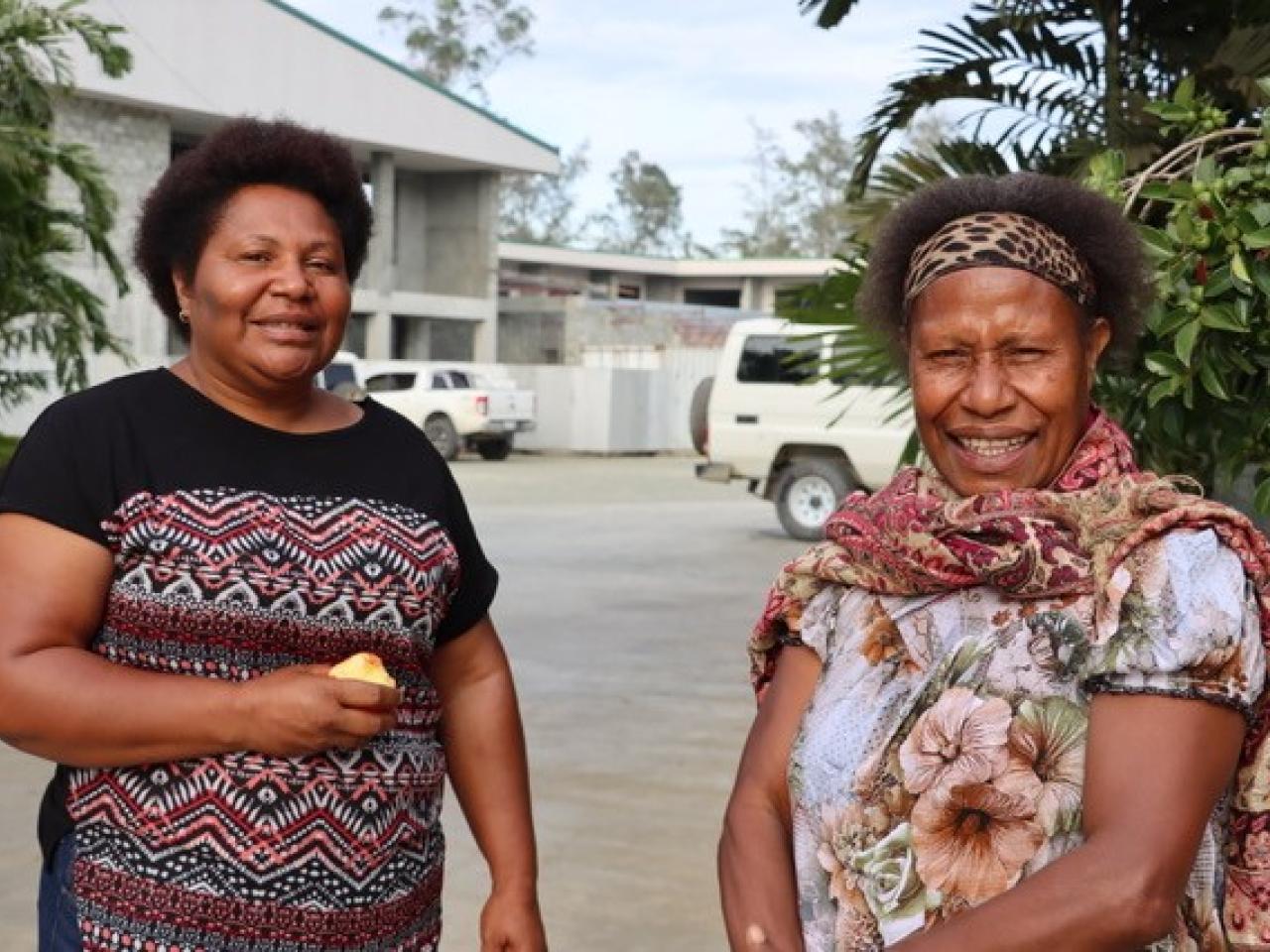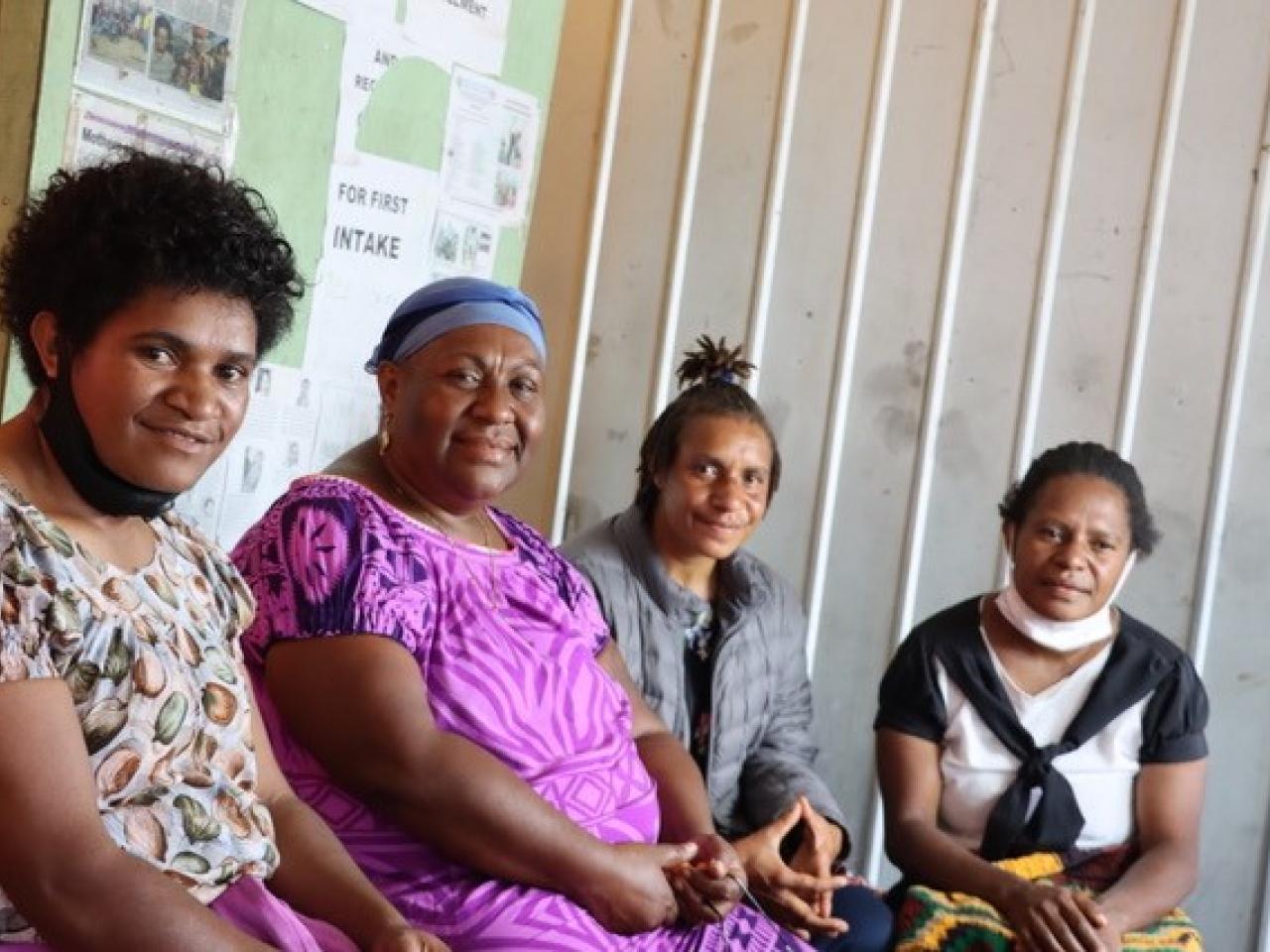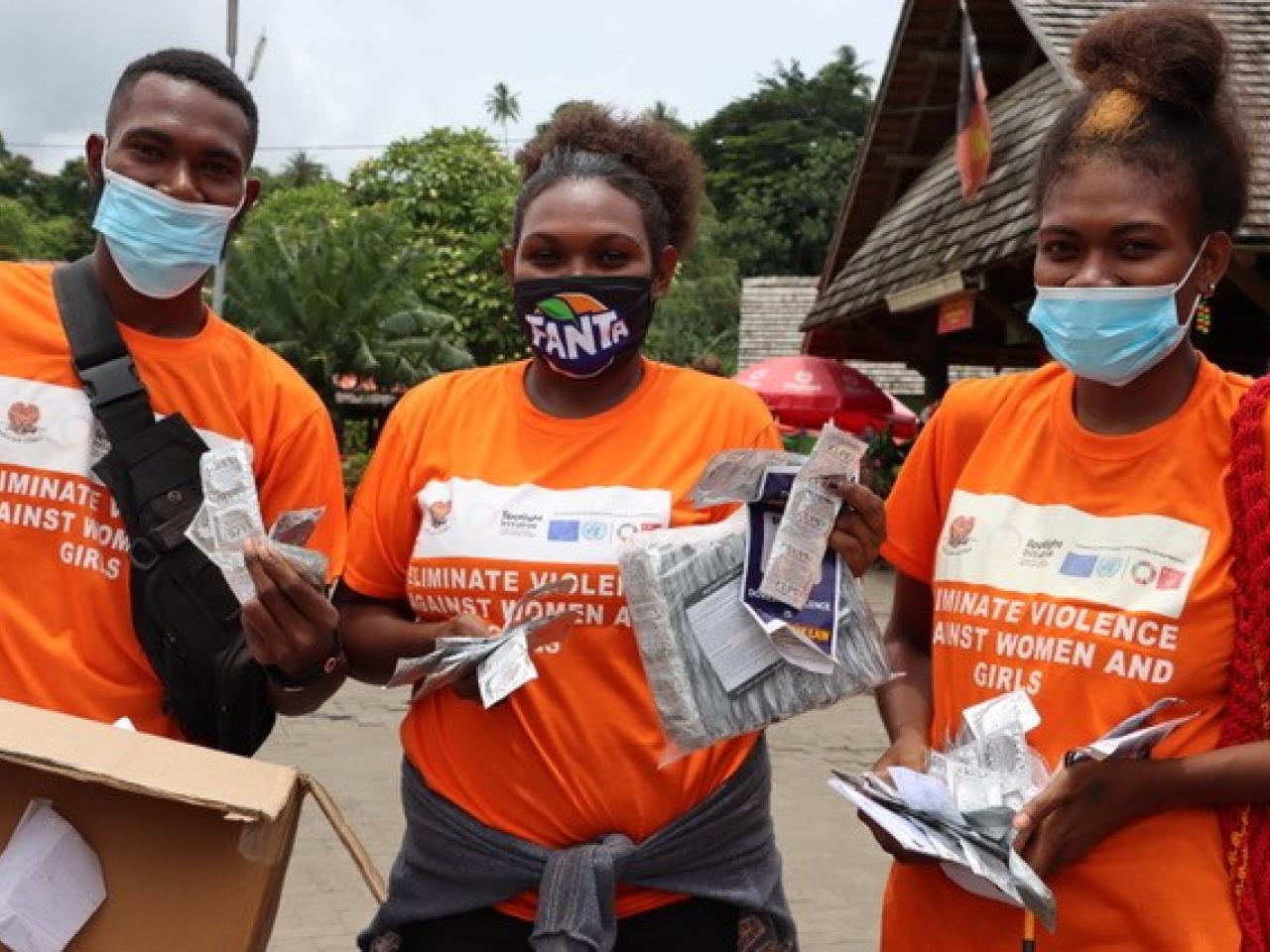Bridging the gap between gender-based violence services and communities in Papua New Guinea

WESTERN HIGHLANDS, Papua New Guinea - “I was brought up in a community, in a family, where my father used to beat up my mother,” shares Western Highlands’ Robin Yakumb. “Everyone in the Highlands region, they grew up in that kind of environment.”
Mr. Yakumb is the interim Gender-based Violence (GBV) Focal Point for Western Highlands Province, one of several people nationally who is appointed to connect families and individuals to government and legal services that assist women and children experiencing violence.
“I was brought up in a community, in a family, where my father used to beat up my mother... Everyone grew up in that kind of environment." - Western Highlands GBV focal point Robin Yakumb
According to Jiwaka GBV Focal Point Mary Tol, local resource constraints have led to perpetrators being set free. “Sometimes the murderers of women and girls are being set free because the police say that there's insufficient evidence to bring them to court,” she says.
These perpetrators are then free to reoffend, leaving women and children vulnerable and communities hesitant to report violence.
On paper, the right of women and children to live free from violence is assured in Papua New Guinea, with protections outlined in the Family Protection Act and Lukautim Pikinini Act, in addition to the Criminal Code. In practice, however, the country has one of highest rates of violence against women and girls in the region. Papua New Guinea ranks 159 out of 189 countries on the UNDP Gender Equality Index and 59 per cent of women aged 15 to 49 reported having experienced physical and/or sexual violence in their lifetime (Demographic and Health Survey, 2016-2018).
A persistent challenge for policy-makers and advocates working to end violence against women and girls in Papua New Guinea is ensuring that protections and services established at the national level are available at the village level; that individuals are reporting cases of violence to police; that police have the resources to respond and the appropriate documentation to present to the court; and that village court magistrates apply the law appropriately and do not permit negotiations for compensation from perpetrators to survivors or their family in order to avoid prosecution.
The National GBV Strategy was launched in 2016 and is a blueprint to guide the work of all agencies across the national government, as well as provincial government bodies, civil society organizations and development partners. The National GBV Strategy is underpinned by the understanding that addressing GBV will require strong leadership, a holistic and coordinated approach supported by ongoing monitoring, evaluation and research.
“Sometimes the murderers of women and girls are being set free because the police say that there's insufficient evidence." - Jiwaka GBV focal point Mary Tol
The National GBV Secretariat (NGBVS) is responsible for implementing this strategy, but a lack of funding has caused significant roadblocks. The NGBVS currently has an interim Director and is not fully staffed.
Following its 2020 launch in Papua New Guinea, the Spotlight Initiative is working to address the challenges in putting the National GBV Strategy into practice, including getting the National GBV Secretariat fully staffed and operating.
In Eastern Highlands Province (EHP), Siviri Lalave has been appointed as the provincial GBV Focal Point. She was also a member of the province’s Family and Sexual Violence Action Committee.
“That committee has been meeting on ad hoc basis up until 2021, when the National Parliamentary Committee on Gender-Based Violence was set up,” says Ms. Lalave. “That's the time that the provincial government saw the importance of having those committees in the provinces set up in addressing this issue.”
“When the government supports, [the national committee] will help deliver the services that the people need. Women and children, and those who are affected by gender-based violence, [will] get the justice that they need.”
Provincial GBV Focal Points are now developing strategies and plans to address local gaps in institutions to prevent and respond to violence against women and children.
“I'd like to bring all the districts together to come up with their own district strategies,” said Mr. Yakumb. “We need these plans as to how we can address these issues at the district level or the community level.”
“I want funding to be very consistent over five years to ten years,” says Ms. Tol. “We don't need a strategy that sits in the corner and collects dust.”
The Spotlight Initiative has supported the appointment of provincial GBV focal points to help turn the National GBV Strategy into action. Support has also included the development of a National GBV Secretariat website to keep provincial contacts and the general public updated on activities and materials.
By Rachel Donovan



